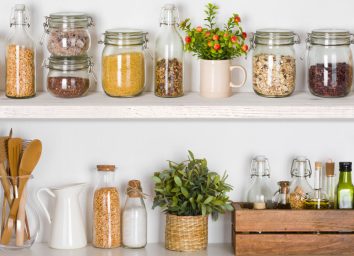Here's Exactly How to Stay Your Healthiest While You're Stuck at Home
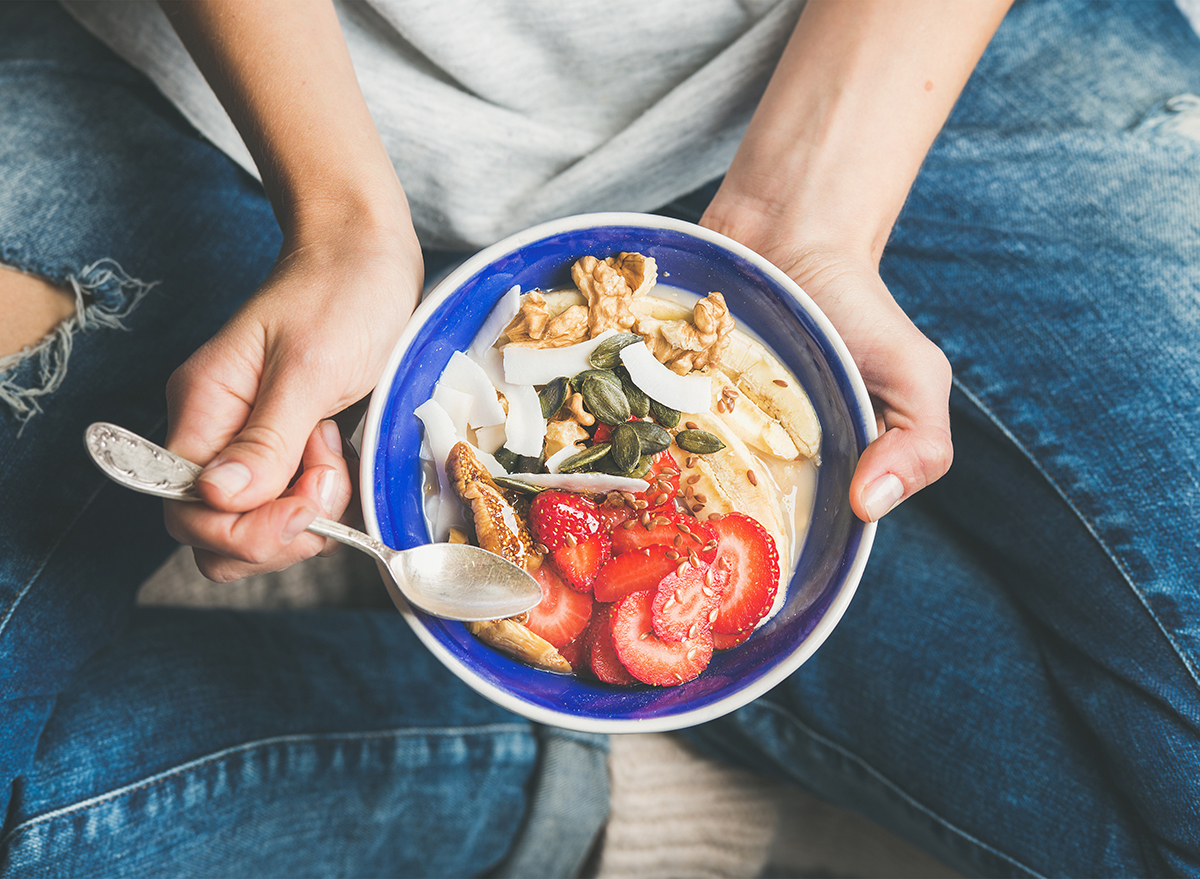
During this time of the COVID-19 pandemic that is filled with major uncertainty, exactly how you're going to stay on track with your weight loss goals might not be at the forefront of your mind. But just because you're not able to head to the gym or stop by your favorite smoothie shop at the moment, that doesn't mean you still can't stay healthy. If anything, it's vital that you keep up with your healthiest habits.
Easier said than done, right?
Well, it's surprisingly easier than you think! Trust us, here. See, there are plenty of simple ways you can remain on course and not gain any extra pounds while you're social distancing and staying in. We've rounded up the best tips from experts that will help you stay your healthiest while you're stuck at home. And you just might even lose weight during this time of quarantine, too.
Make a meal plan, and stick to it.
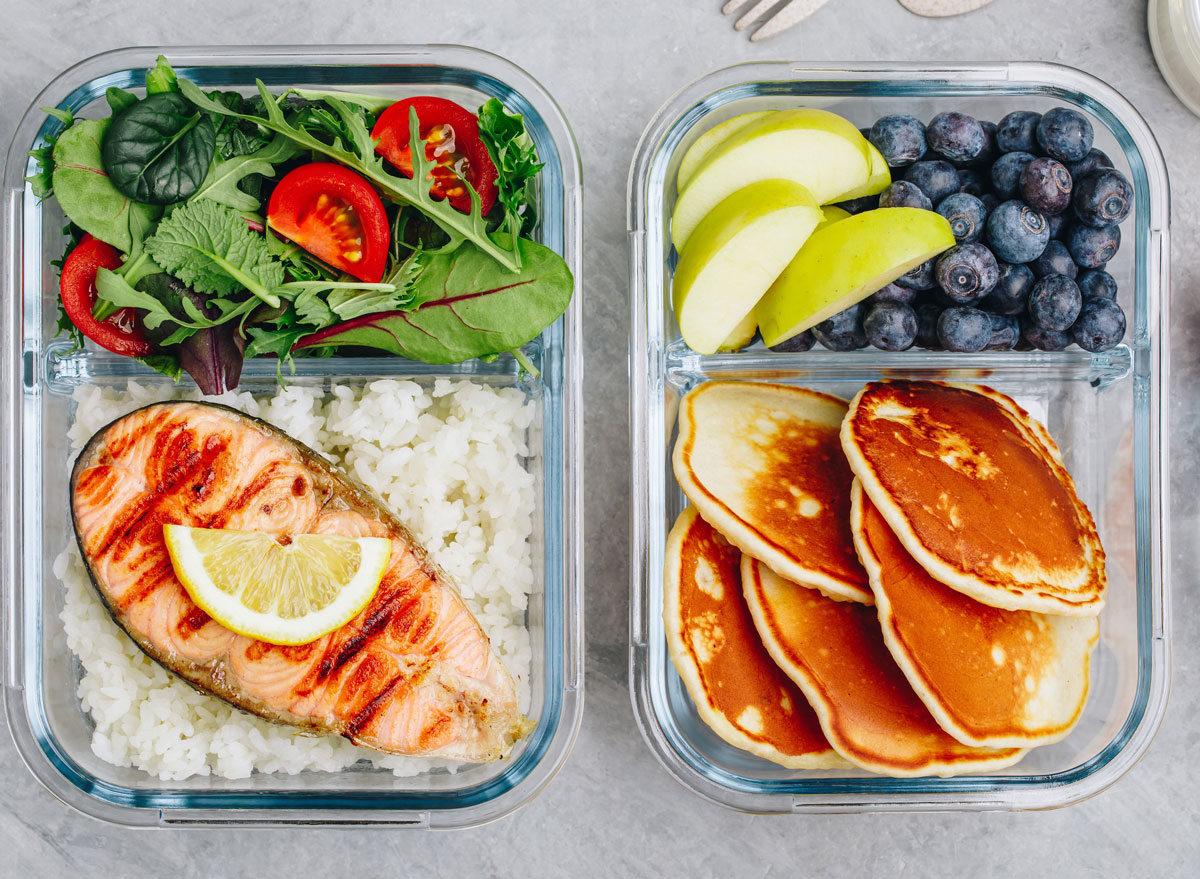
Just because you're now suddenly a few feet away from your kitchen at all times, you shouldn't keep wandering in there and come out with food in your hand. It's important to have a routine and maintain a sense of normalcy, and eating designated meals that you plan out ahead of time is a great way to do that.
"I would recommend making an eating plan for your household. That way you can use the perishable foods first and add to it non-perishable foods. This will also make sure your food lasts longer," says Toby Amidor, MS, RD, CDN, FAND award-winning nutrition expert and Wall Street Journal best-selling author of The Create-Your-Plate Diabetes Cookbook.
Meal prep does always makes life easier and this way, you don't have to keep thinking about what you're going to eat and you'll avoid over-eating, too.
Have an eating schedule.
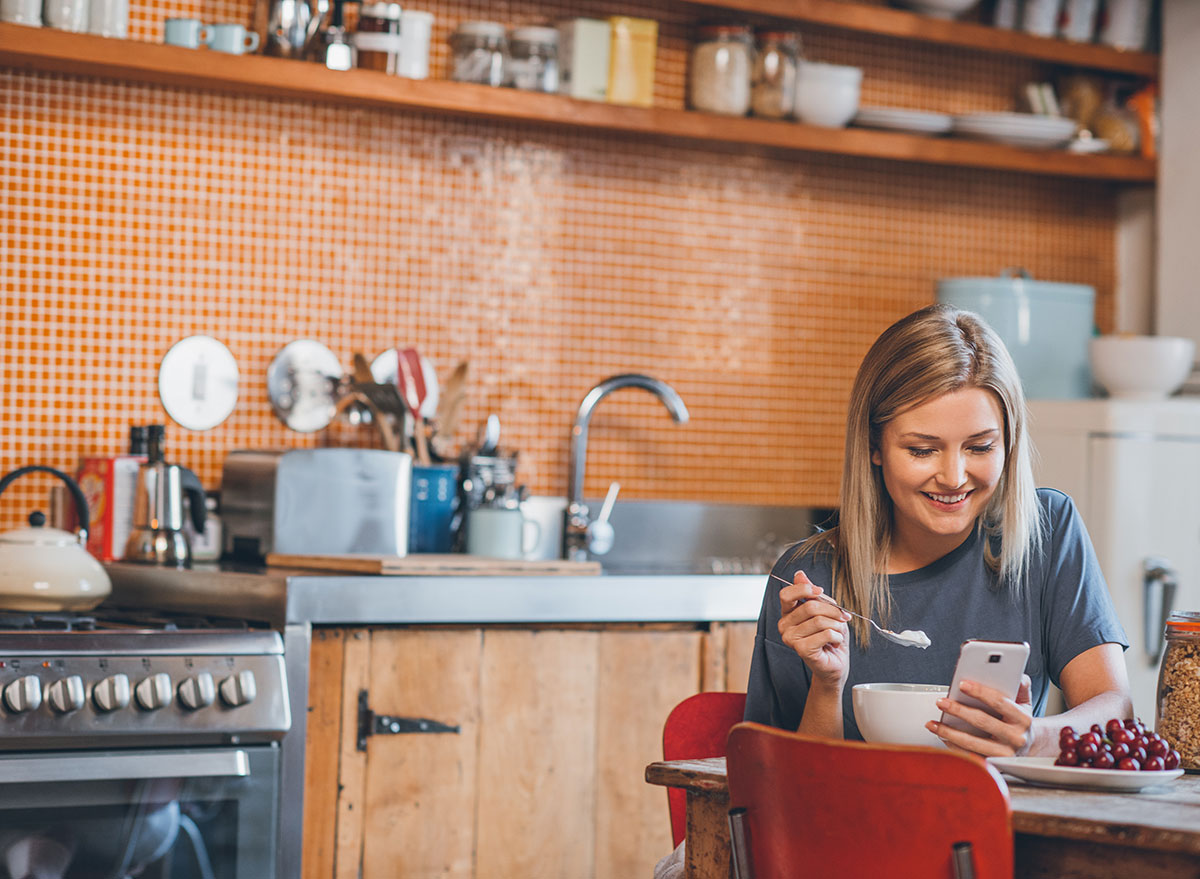
When you're working from home and possibly tending to those who live with you too, it can be hard to remember to keep yourself nourished, and at decent hours. Don't let it hit 3 p.m. and you haven't eaten anything yet! Your goal should be to keep eating at regularly scheduled times when you're actually hungry, and to eat in the same place.
"To minimize over-picking [and] grazing, make it a rule to only eat in the kitchen or dining area and nowhere else in the house," Amidor says. "Food should be eaten at the designated times (which you can schedule for the family) so that everyone eats together and then leaves the kitchen so it can be cleaned and then closed until the next meal or snack. A little scheduling can go a long way during this stressful time."
Keep your meals filled with foods that will keep you full.
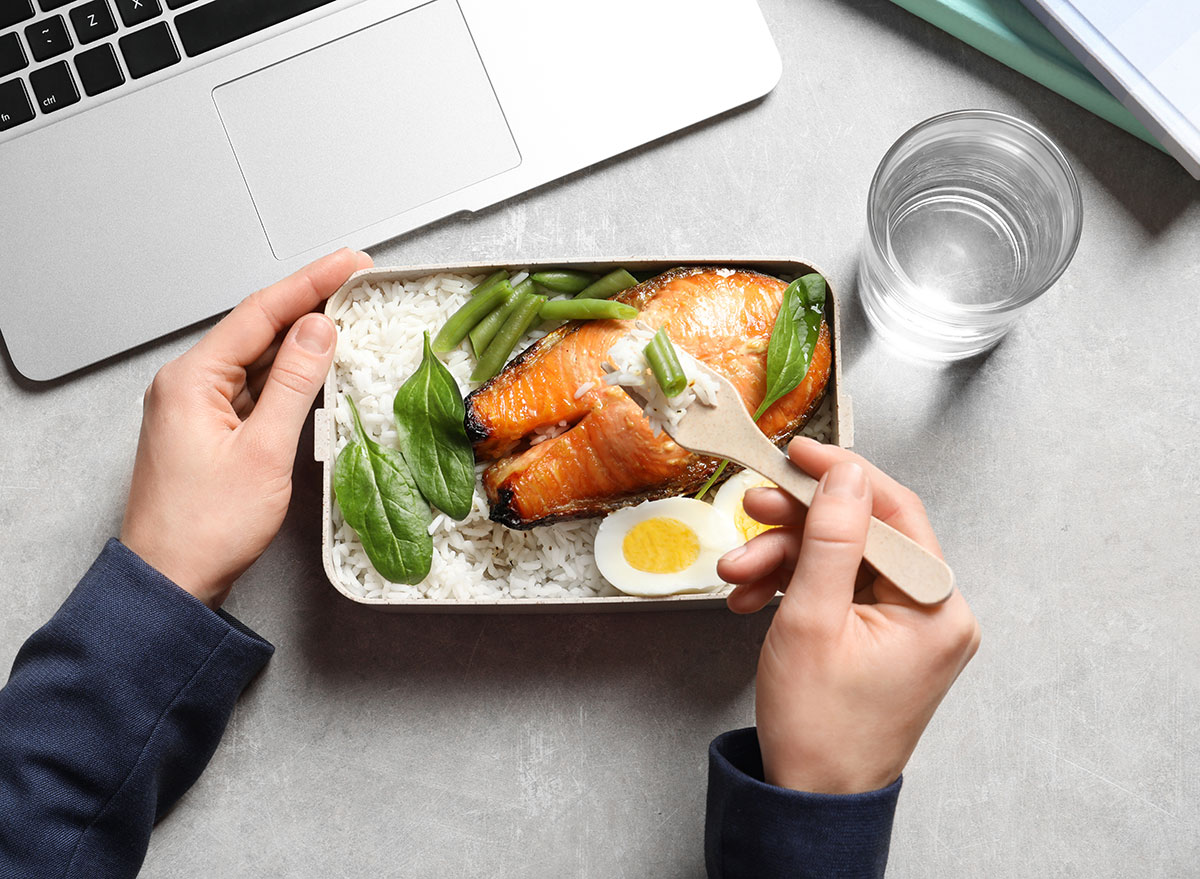
There's nothing worse than eating a meal that is, well, just less than satisfying. And especially with the temptation that is all those goodies you stocked up on that are waiting for you in the kitchen. To avoid feeling hungry right after you eat, be sure your meals are filled with all the right things.
"Make sure to include foods rich in protein (including lean meat, chicken, soy foods, seafood, and dairy), fiber (such as whole grains, nuts, seeds, fruit, and vegetables), and healthy fats (olive oil, canola oil, nuts, and seeds) at every meal and a snack to feel satisfied," says Elizabeth M. Ward, MS, RDN. "If you are satisfied after eating, you're much less likely to reach for high-calorie, low-nutrient foods that could cause weight gain."
Snack smart.
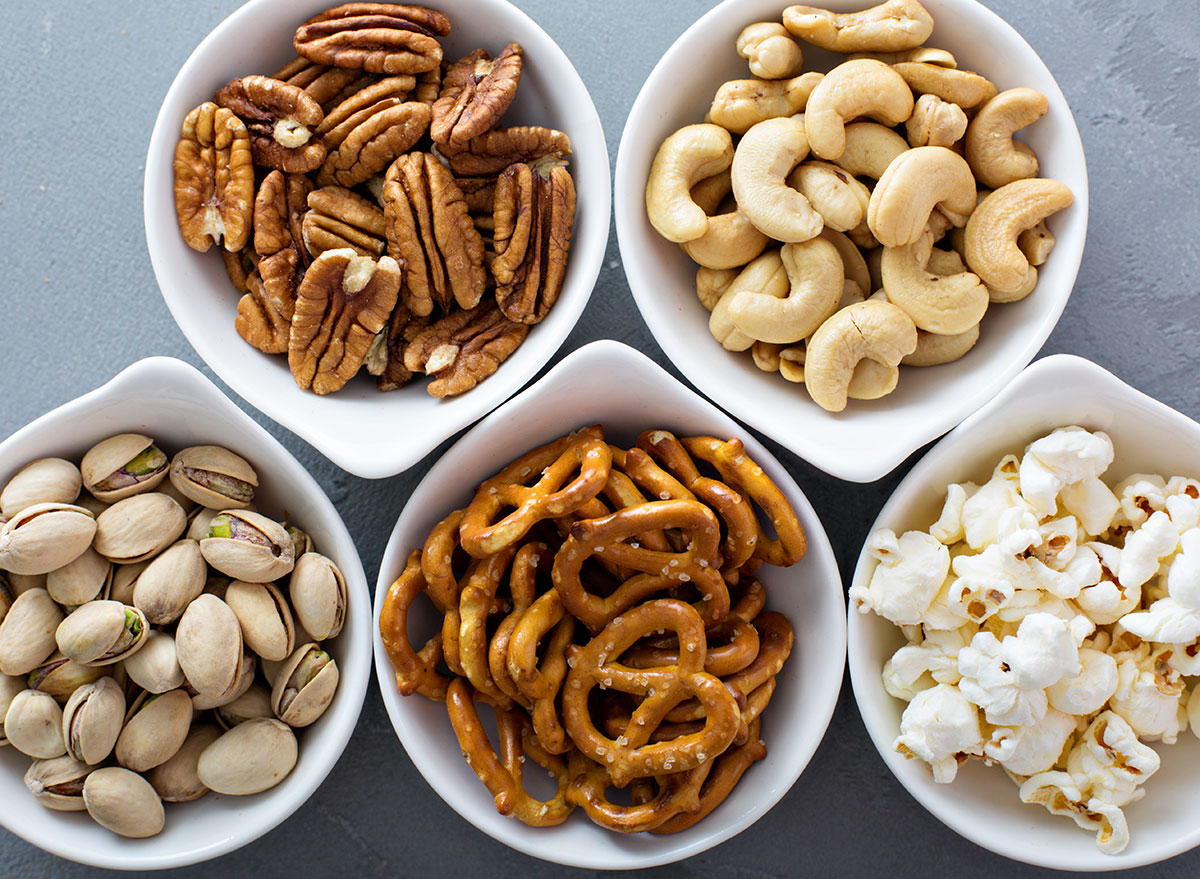
Snacking is inevitable—sometimes you need a little pick-me-up in-between meals and that's totally OK! But there are ways you can indulge in a little snacking without derailing your weight loss plans.
"Put snacks in single-serving containers instead of eating straight from the bag," says Dr. Rachel Paul, PhD, RD from CollegeNutritionist.com. And along with being mindful of how much you're eating, you want to keep track of exactly what you're putting into your body, too.
"Don't tempt yourself. It's OK to have treats and to bake and cook more now that you have the time, but make something that's really worth the calories because it tastes great rather than munching mindlessly on junky snack foods," Ward adds.
Hold yourself accountable.
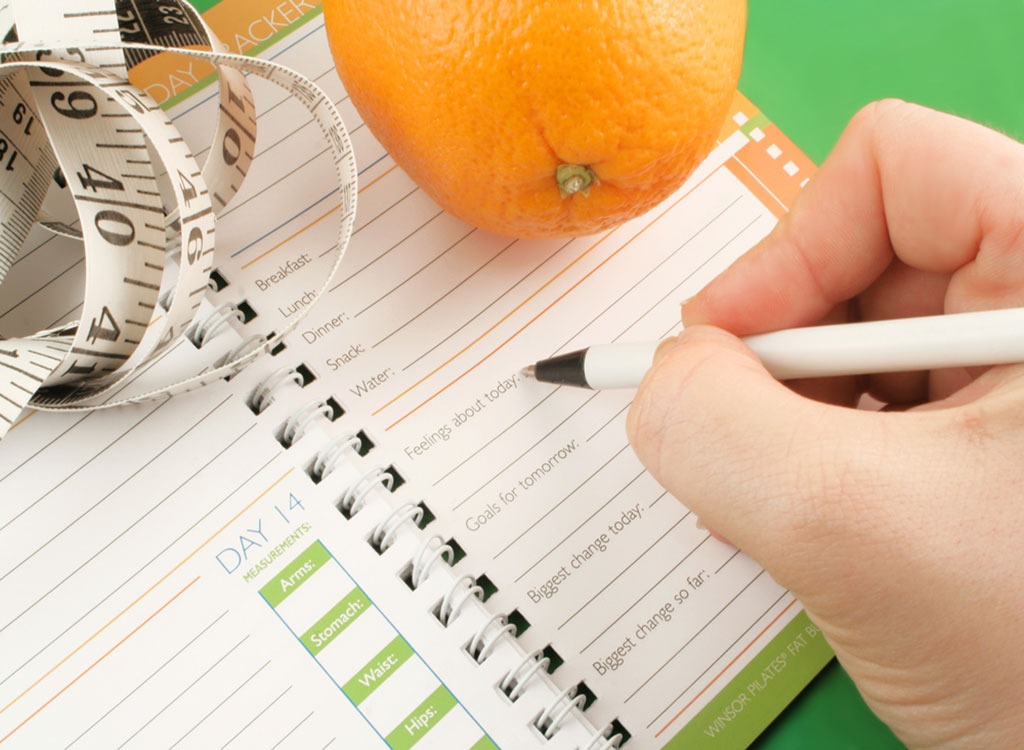
"Track what you're eating—this is a great way to keep you accountable," says Dr. Paul. "Track what you think you're going to eat in the morning, and then adjust as you go throughout the day."
Essentially, it's never a bad idea to keep a food journal, even when you're eating in and making food yourself instead of dining out!
Stay active.
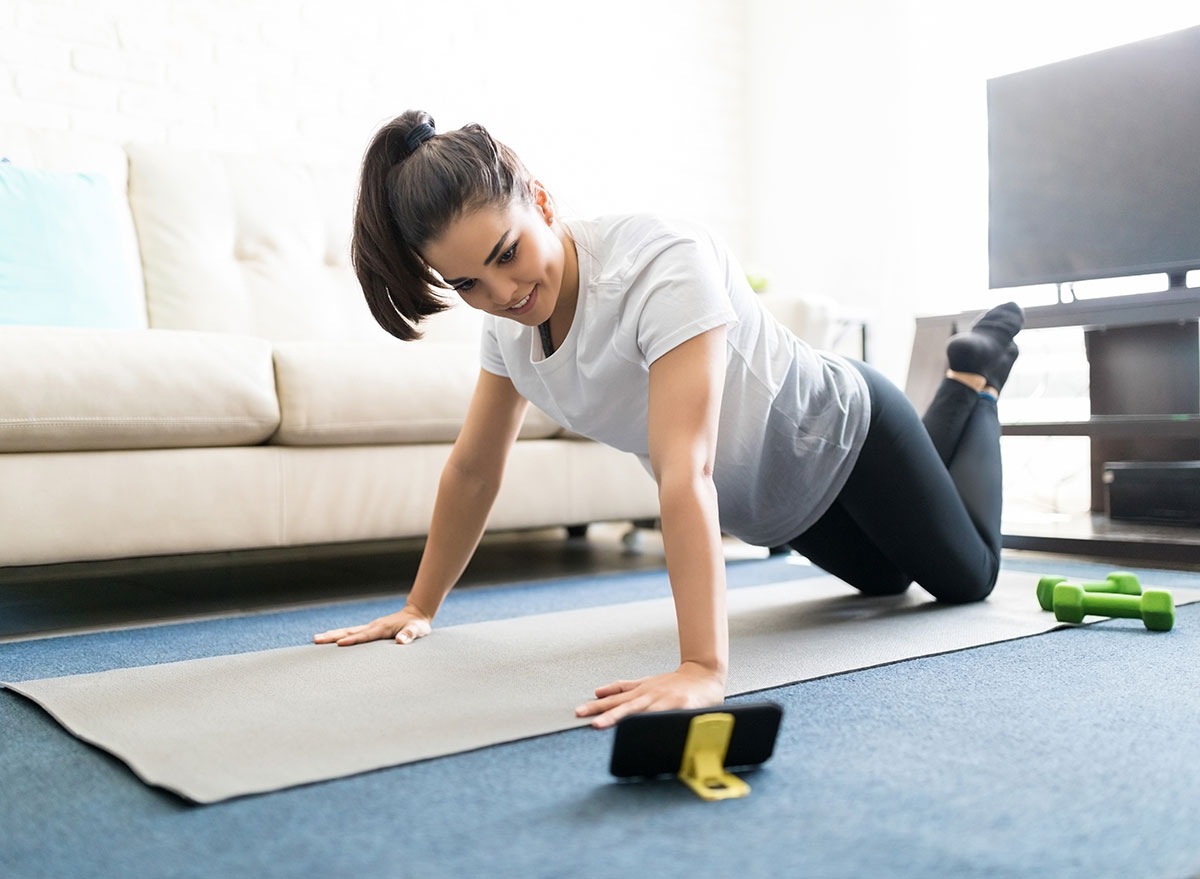
With all this time inside, there's a good chance you're going from working on your computer to sitting on the couch binging another show on Netflix to then laying down in your bed reading a book. Nothing against those activities, but they require you to be sitting down a lot! So it's important to bring the gym right to you.
"Do some exercise every day. There are a ton of free and low-cost exercise apps and websites online," Dr. Paul says. And there are other benefits to making time for exercise besides keeping you trim.
"Get regular physical activity. Exercise burns calories, but it also wards off stress, which could lead to stress-eating," Ward explains. Which brings us to…
Channel your stress.
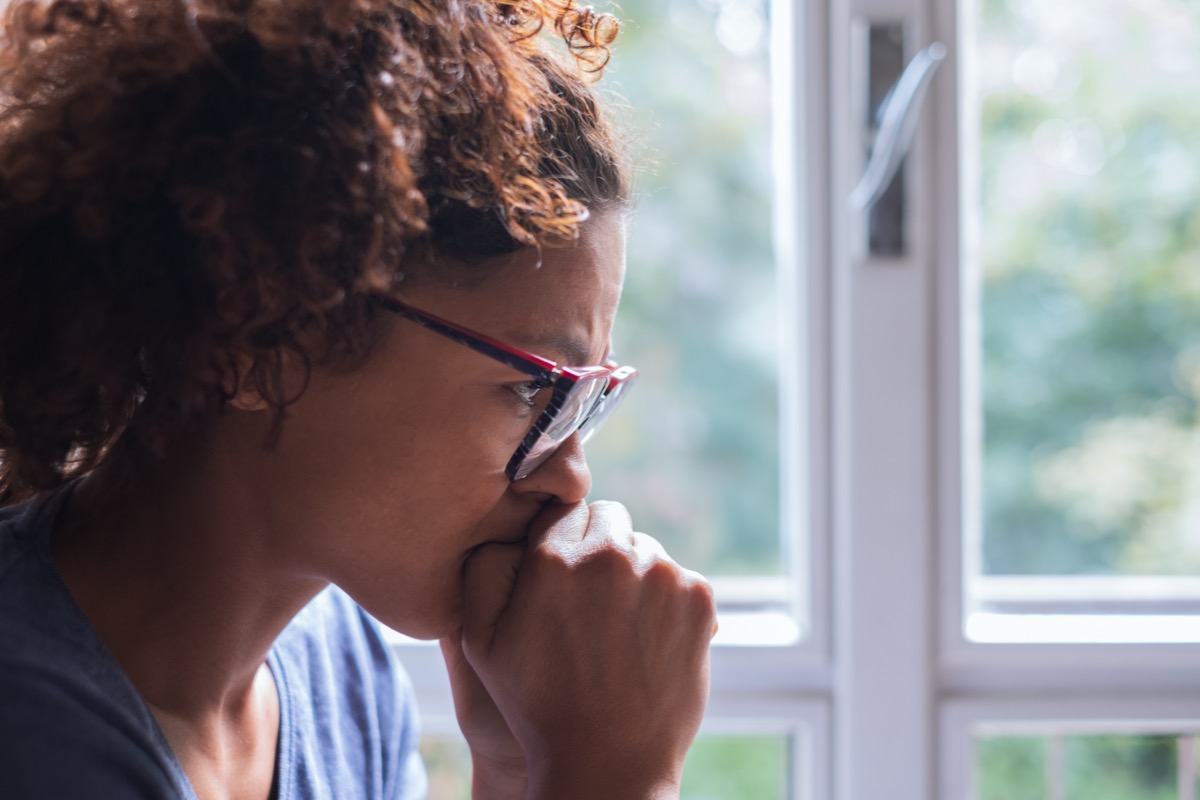
Emotional eating is very common and during a highly stressful time like the world is in right now, you might turn to food for comfort. Having your favorite foods on hand is one thing, but you don't want to unintentionally end up developing dangerous eating habits.
"If you feel like stress-eating, take a moment to check if you are hungry or stressed or anxious," says Amidor. "Use a scale from 1 to 10 (10 being most hungry) to determine if you are truly hungry. Much of the time you may be emotional eating, so create a list of activities you can do instead. Just be sure to practice social distancing as well as recommended by the CDC."
So what can do you when you're feeling overwhelmed and the urge to turn to food hits?
"When you're stressed, call a friend or family member and talk about how to solve your problem, instead of eating. Eating won't solve the problem, and will often make you feel worse afterward," Dr. Paul suggests.
Take up a hobby for when a craving strikes.
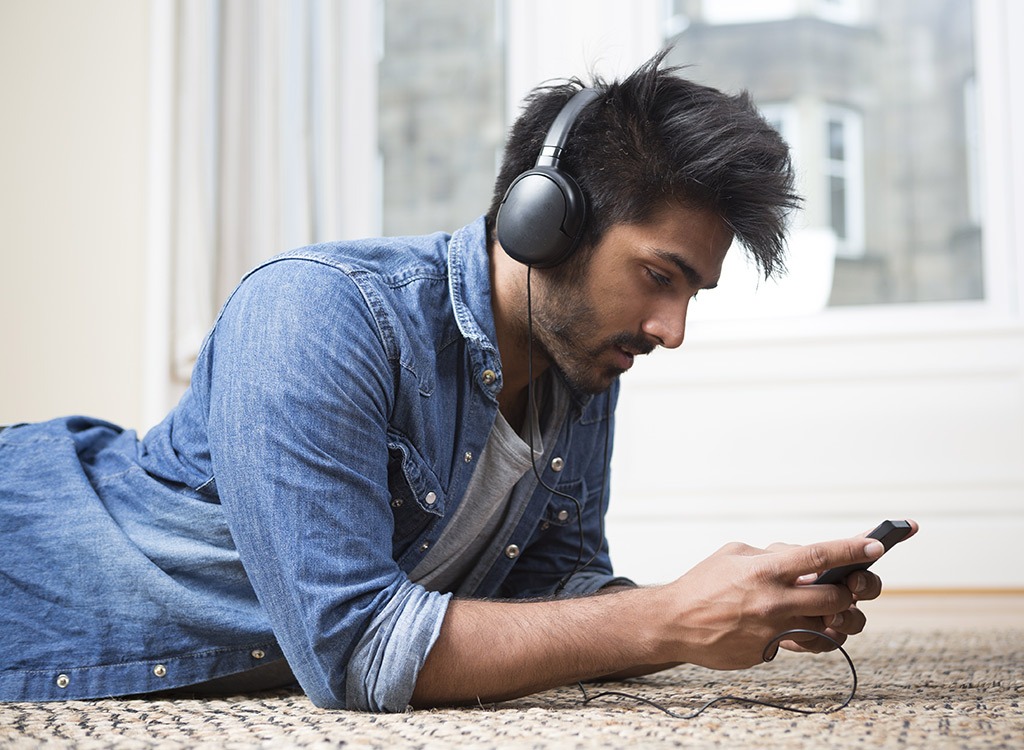
Being forced to stay inside can obviously trigger feelings of restlessness and boredom, which can then lead to unnecessary eating as you're not actually hungry. So what better way to use up any free time you may now have with finally trying out that hobby you've always wanted to? Or better yet, do something you already enjoy doing.
"Find other enjoyable activities when you're feeling an urge to snack but you know you're not hungry. Journaling, going on Pinterest, listening to a podcast or audiobook [are just some ideas]," says Dr. Paul.
Make sure you're sleeping.
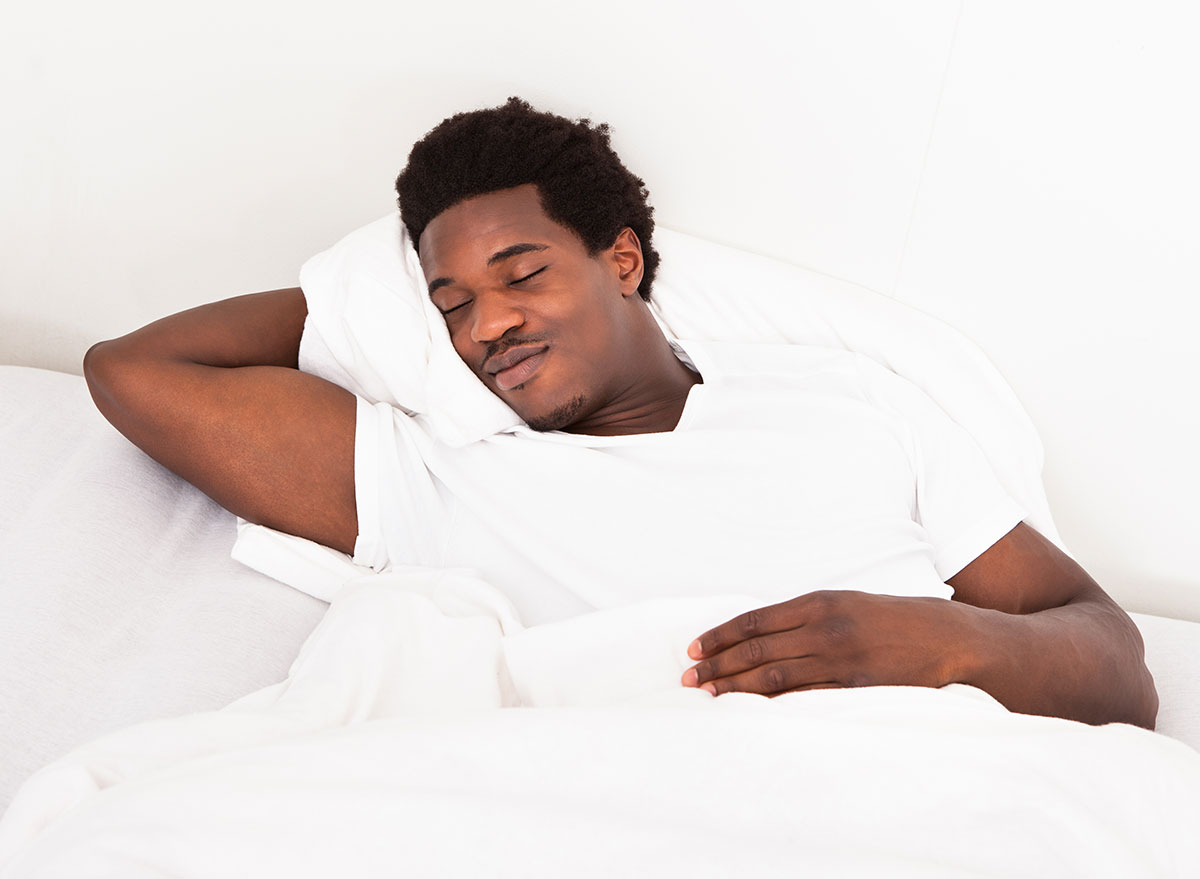
Sleep is always an important part of anyone's weight loss journey. Your body needs time to rest up so it can function properly, after all. But catching the right amount of (restful) sleep every night helps curb any bad cravings you may be having as well.
"Get enough sleep. Adequate sleep helps control hunger hormones, and being well-rested helps you to better resist calorie-rich foods like chips and sweets that you may eat to boost your energy levels," Ward says.


